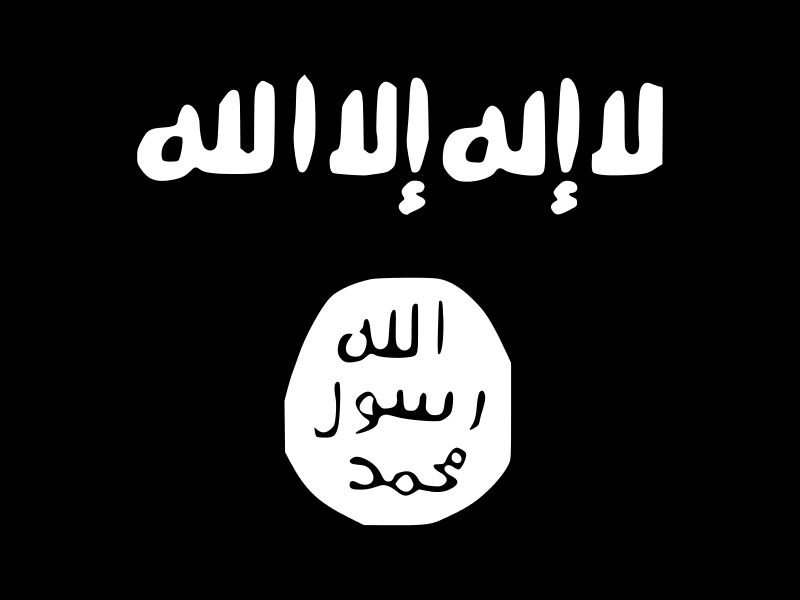Russia Cracks Down on Internet Free Speech, Except When It’s ISIS
by Global Voices / September 19, 2014 / 1 Comment
The Internet army of the “Islamic State,” having lost some of its battles in the West, is now recruiting and fundraising on the Russian social network VKontakte, a Russian media investigation claims.
In an extensive feature story, Apparat, a Russian Internet and technology news website, reveals what they say is proof of ISIS’ massive move into the “free” and “comfortable” Russian social network space, after ISIS accounts on Facebook and Twitter came under pressure.
According to the report, there is now a large undercover ISIS network on VKontakte, with accounts and pages in both Arabic and Russian. The network engages in recruiting efforts, as well as propaganda and fundraising for ISIS. Apparat says the first pages sprung up on VKontakte about a month ago, after Twitter and Facebook began blocking ISIS-led accounts. Among the first pages to appear on VK were those of the propaganda arms of the “Islamic State”: the Arabic-language al-Itisam and the English-language al-Hayat. ISIS also created several clones of the communities under the common brand “Islamic State News,” Apparat’s investigation shows.
Apparat found that VKontakte now hosts many public pages for the “Caliphate”‘s provinces, as well as accounts belonging to ISIS fighters and supporters. Journalists note that ISIS “fan groups” are nothing new to VKontakte: the largest Russian-language ISIS community, ShamToday, has been around since the fall of last year, and now has over 12,000 subscribers.
In the course of its investigation, Apparat says it was able to contact some ISIS fundraisers and recruiters, using VKontakte messaging and phone numbers published in VK communities. Finding out how to support financially or even how to join ISIS was relatively easy, Apparat reporters say. (The website claims it spoke to some Russia-based recruits, who say it’s possible to reach the Islamic State through Turkey).
Earlier this month, ISIS released a video addressed to Russia’s Vladimir Putin, claiming they were headed to the North Caucasus to liberate the restive region and wage war on Russia. This got a reaction from Chechen leader Ramzan Kadyrov, who said on Instagram that anyone who threatens Russia or mentions Putin’s name “will be destroyed where he stands.”
VKontakte, the world’s largest Russian-language social network, covers many post-Soviet states, and many of the recruits allegedly come from Kazakhstan and Uzbekistan. But Russians join ISIS, as well, Apparat says. Indeed, the website lists “a graduate of an education department in Ufa, a young father from Derbent, and a Kazan university student” among the profiles it found on VKontakte.
Apparat says they contacted the VKontakte press service and Russian communication watchdog Roskomnadzor for comments. The state watchdog did not respond to the request, while VKontakte said, “Unfortunately, we will not comment on that.”
In Russia, ISIS and its leader Abu Bakr al-Baghdadi are on the list of extremist and terrorist organizations and individuals. According to Russian anti-terrorism laws, any pages of these entities online are subject to immediate blocking or removal. Despite this, Apparat found that Vkontakte blocked only two out of several hundred ISIS-related pages guilty of publishing calls to violence.
Apparat’s discovery of a massive ISIS network on VKontakte, existing uninhibited in the otherwise more and more restricted RuNet, does seem strange, especially if we recall the relatively innocuous content that has activated state censors in the past. Just a month ago, for instance, the Prosecutor’s office in Russia blocked the VK page of the “March for Federalization of Siberia” on accusations of separatism. And in April of this year, Roscomnadzor blocked a number of pages linked to the Ukrainian “Right Sector” movement, claiming that the group is extremist.
Until the Russian government releases more details about its policy toward ISIS-related online content, it’s hard to deny the Kremlin’s double standard, which at best seems to be a case of willful ignorance.
Updated on September 11, 2014: Several hours after the Apparat feature was published, head of VKontakte public relations George Lobushkin voiced the official stance of the social network regarding “Islamic State” pages. “We block all known ISIS communities (including the ones described in the story) that have calls to terrorist activity,” Lobushkin said
This article was written by Tetyana Lokot and was originally published by Global Voices on September 11, 2014






One Comment on "Russia Cracks Down on Internet Free Speech, Except When It’s ISIS"
Informative article! Here’s another good article that I came across on the history of ISIS. http://goo.gl/a0vpa4